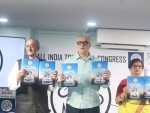Proposal to move Official Amendments to the Prevention of Corruption (Amendment) Bill, 2013
The proposed amendments would fill in perceived gaps in the domestic anti-corruption law and also help in meeting the country's obligations under the United Nations Convention Against Corruption (UNCAC)more effectively.
The proposed amendments are mainly aimed at laying down more stringent measures to tackle corruption as follows:
• Providing for more stringent punishment for the offences of bribery, both for the bribe giver and the bribe taker.
• Penal provisions being enhanced from minimum 6 months to 3 years and from maximum 5 years to 7 years (The seven year imprisonment brings corruption to the heinous crime category).
• To contain gain of benefits from profits of corruption, the powers of attachment are proposed to be conferred upon the trial Court (Special Judge) instead of the District Court.
• Expanding the ambit of provision for containing inducement of public servant from individuals to commercial entities is being added to contain supply side of corruption.
• Providing for issue of guidelines for commercial organizations to prevent persons associated with them from bribing a public servant.
• The average trial period of cases under PC Act in the last 4 years has been above 8 years. It is proposed to ensure speedy trial by providing a trial completion within 2 years.
• Intentional enriching by public servants will be construed as criminal misconduct and possession of disproportionate assets as proof of such illicit enrichment.
• Non-monetary gratification has been covered within the definition of the word gratification.
• By way of explanation 2 to section 7(2), the obligation of a public servant has been explicitly delineated such that the public servant deters from violating a statutory duty or any set of rules, government policies, executive instructions and procedures.
It is also proposed to extend the protection of prior sanction for prosecution to public servants who cease to hold office due to retirement, resignation etc.
Further, prior sanction for inquiry and investigation shall be required from the Lokpal or Lokayukta, as the case may be, for investigation of offences relatable to recommendations made or decision taken by a public servant in discharge of official functions or duties.
Support Our Journalism
We cannot do without you.. your contribution supports unbiased journalism
IBNS is not driven by any ism- not wokeism, not racism, not skewed secularism, not hyper right-wing or left liberal ideals, nor by any hardline religious beliefs or hyper nationalism. We want to serve you good old objective news, as they are. We do not judge or preach. We let people decide for themselves. We only try to present factual and well-sourced news.







